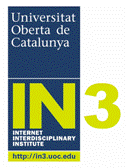Gendering the Millennials. Analyzing Staff Responses to New Student Profiles in Spanish ICT Higher Education

Abstract
&
This article reports on empirical research on the gendered culture of telecommunications and computer science education in Spain. It firstly summarises the evolution of the overall student population and its effects on tertiary level ICT education. A decline in overall work values, academic performance and student attitudes are identified as a shared concern among academic staff. The second part of the paper explores how this variation in student profiles can be interpreted from a broader perspective of generational shifts among young people less in terms of the empirical evidence of a homogeneous Net Generation, but rather in terms of a rising concern for educational reform in Science, Engineering and Technology (SET) education. I will argue that urgent calls for making SET education more attractive for today's young people emerges as a forceful ally to keep gender issues on the agenda of higher education reform.
Keywords
Millennials, Engineering Education, Spain, Gender, Men & Masculinities
Author Biography
Jörg Müller
Jörg Müller works currently as post-doctoral researcher in the Gender and ICT Research Program at the Internet Interdisciplinary Institute IN3 in Barcelona, Spain.